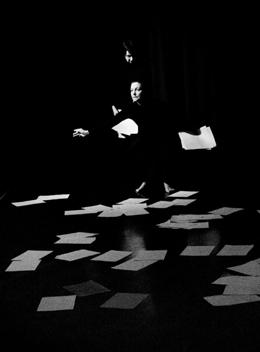
-- In preparation, this issue of Axon went under the title of Poetry on the Move, the name of the poetry festival initiated by the International Poetry Studies Institute (IPSI) in 2015. Since that first year, however, the festivals have had distinguishing themes. In 2019, the 50th anniversary of the Apollo 11 moon landing, the theme — and title of the festival symposium — was ‘Small Leaps, Giant Steps’, and this issue brings together a number of papers presented at the symposium, as well as contributions from poets who were not able to attend the event.
The papers have been divided into two groups, representing two main strands of enquiry. The first, ‘Grappling with Knowledge’, shows poets engaging with (and occasionally appropriating) knowledge from other spheres: visual art; architecture; science; the news; dark tourism; the often misrepresented adolescent experience; and indeed, other literature. The second, ‘Poetic Moves’, takes ‘steps’ and ‘leaps’ somewhat literally, featuring poets at work with dance and choreography, writing on the move, or exploring breath as a driving force behind both movement and poetry. In both groups, the writers tread towards knew knowledge — however boldly or provisionally — through poetry. And as ever, in Axon, there are newly published poems in the mix.
Poetry on the Move is based at the University of Canberra, but IPSI is involved in other events, internationally, and a third section of this issue of Axon derives from a symposium hosted by the University of Reading, in partnership with the Oxford Brookes Poetry Centre. Steven Matthews, Peter Robinson and Niall Munro provide a specific introduction to the section titled ‘Our Poetry, Our Needs’. A fascinating set of artist statements complements the poetry published here.
This issue has the distinction of being published during a global crisis, during which poetry has proved to be a sustaining force for so many of us who are confined. Poetry may not be physically on the move much right now, but you cannot lock poetry down. There have though been difficulties for contributors sourcing some references while libraries are closed, and we trust that readers will be understanding about this. Any missing detail of works cited will of course be added in due course.
Paul Munden, Editor